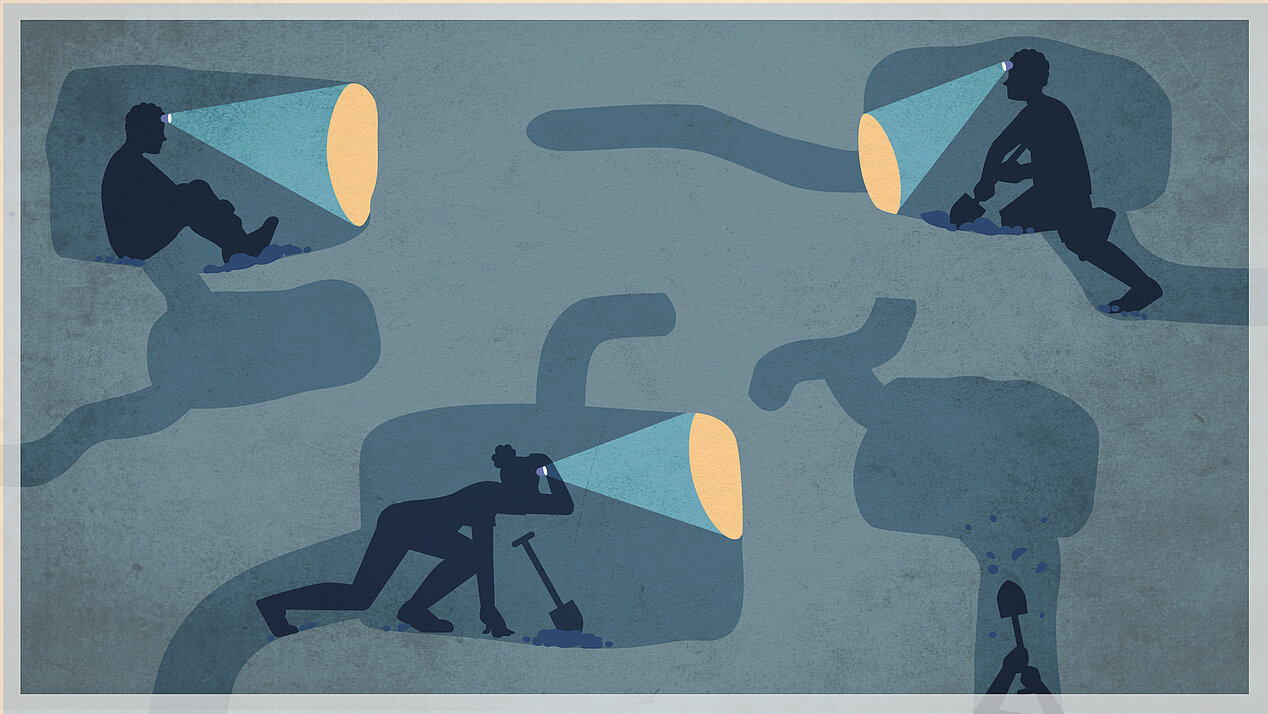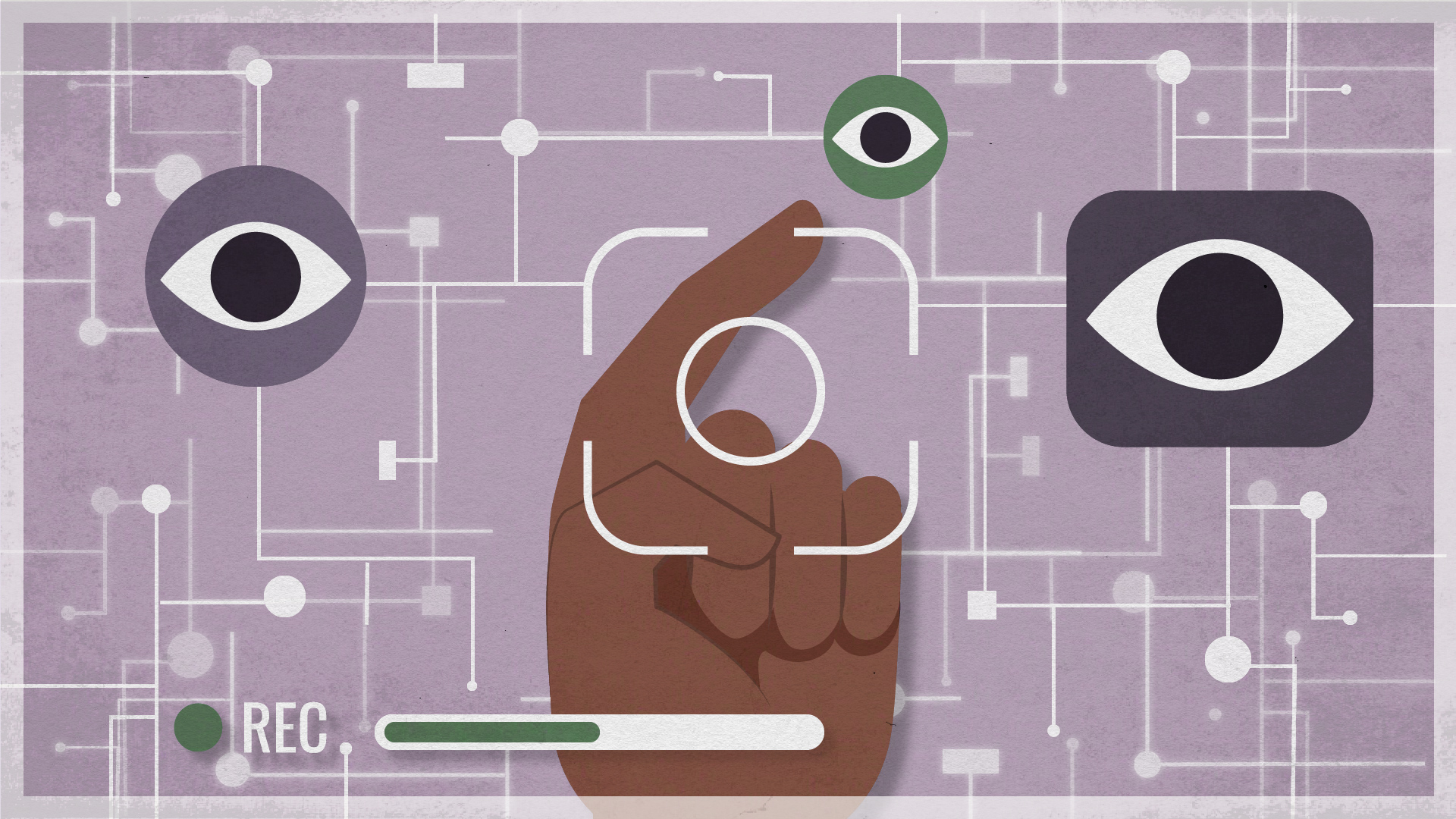A little while ago I read an interview with a climate expert under the heading 'It's too late for pessimism'. From a linguistic point of view this is a great sentence, because it contains so much more than sentences that are merely good. 'Pessimism' is the only stand-out word here, while the other five are just stem cells of language, little words with dozens of possible uses. But in this combination they express so much at once: the seriousness of the situation as well as the necessity, indeed the urgency, of taking action. And, perhaps most importantly, they contain a grain of humour. Because you have to be able to allow yourself to be pessimistic. When the roof is burning above your head, you don't tend to sit on the sofa complaining about it. Or if you do, you become a comic figure, but in a dramatic and existential sense: the whiner in the inferno.
Gernot Wagner, a Harvard-based Austrian researcher, described climate change as the 'perfect problem'. Even if we humans were able to switch off our emissions like a lamp from one day to the next, temperatures would soar even more – with disastrous consequences. Why? Because we are not only emitting harmful carbon dioxide into the atmosphere, but also the air pollutant sulfur dioxide, which gets trapped in the lower atmosphere and reduces solar radiation. It serves as a parasol for our poor, beleaguered Earth. So air pollution mitigates the worst effects of our emissions – but kills between 3 and 6 million people every year.
Since then, I haven't been able to get the words 'perfect problem' out of my head. It seems to express our situation perfectly. Gernot Wagner is far from confident that science will be able to find a solution to the climate crisis. And even if it does, it would be impossible to enforce it politically. So far, our efforts have been pretty pathetic. The keyword is chlorofluorocarbons, which I recently presented to my children as proof that the global community has managed to work together on climate issues in the past. For a while, every refrigerator, every deodorant proudly bore a sticker proclaiming it was 'CFC-free'. We smugly thought that we had saved the world, but, unfortunately, we had just replaced these harmful substances with even more harmful ones, which massively accelerated the crisis. But we didn't know that at the time. As has happened so many times over the years, we did something without having an inkling of what it would lead to. Today, our actions are far more powerful than in the past. We have come close to being the gods that we used to worship, but unfortunately we lack their divine plan. The future looks more apocalyptic than ever. And yet, or perhaps because of that, the aforementioned climate expert insists that it's too late for pessimism.
The light of cultural achievement
Two hundred years ago, enlightened political writers like Ludwig Börne in Germany kindled the light of a cultural achievement that we are in the process of extinguishing. Because battles of words, conducting a reasoned argument in a manageable and retrievable place – this has all come to an end. You may feel upset or desperate, but it is as true and verifiable as the fact that corals and amphibians are dying out, and the insects will be next.
The end has not come because people weren't up to the job. All over the world, intellectuals, scientists and journalists are working as hard as ever, diligently and combatively highlighting issues such as the climate emergency, the financial crisis, Trump and global migration. The end is also not merely a case of being superseded, as happened with the milkers, settlers, tailors and furriers of the past. That would be sad, but not drastic. What is drastic, however, is the total dissolution of the public sphere as such, which in Börne's day was formed by civil society as a counter public to the state and its organs. Its components are still there, but they are as fragmented as microplastics in the oceans. Who are we trying to reach by writing in the broadsheets?
Last summer I had a chance conversation with a very pleasant young man. Just thirty years old, he was articulate, intelligent and thoughtful. As it turned out, he wasn't just interested in politics, but worked as an adviser to politicians, political parties, sometimes even ministries, in Germany and Austria. With raised eyebrows, he told me about the kind of private tutoring he had to provide every day. He said some of his clients are keen to gain the approval of Germans who read the broadsheets. But he said this group of people are utterly meaningless for his work. These few hundred thousand people simply don't count.
He added that the German media as a whole has only just understood the requirements of digitalisation, and he was unable to come up with the name of any traditional newspaper other than The New York Times. I suddenly felt about a hundred and twenty. In this situation I could have asked so many questions, but – almost breathlessly – I only asked two. First, I asked him if he wasn't sorry about the enormous waste of knowledge and experience, because the people who still produce these funny old newspapers are a treasure trove of – yes, I actually said it – content, which could be useful to other people. He just shrugged and said it has been ages since he last read them, and he doesn't miss them.
Then I pressed him on how his generation and the next, the oft-cited digital natives, would in future find consensus on their concerns, their priorities, on what needed to be done next – so about their expectations of politics. Where is your public sphere, I asked, if you no longer use ours, which I'm still trying to understand? Where are your online watering holes that you seek out when you want to talk, argue, debate? Once again, he just shrugged and said it would work itself out over time. He was as relaxed as a ten-year-old who switches on all the electrical appliances without even knowing what they are.
Participation without representation
Techno-sociologist Zeynep Tufekci and political scientist Ivan Krastev are currently conducting research on politics in the digital space. Their studies of protest movements such as Occupy reveal that these have failed to make a lasting impact. They may cause a stir in the short term, but they tend to run out of steam. It's true that they are an effective way of creating connections, but people soon start chasing after something else. According to Krastev, to date, online protest movements have been a form of participation without representation. And this probably also applies to the confused blur that has replaced our old public sphere: mass participation, but its effects are fragmented and all rules have been abolished. But everyone has an abundance of insecurity and anger.
Of course, there is not and never has been a single public sphere, they have always been numerous. The political, scientific, and artistic spheres and their many sub-groups have been like the large and small coloured circles of a Venn diagram. For many years, the political sphere was unfair and restricted, such as in ancient times when male patricians were allowed to visit the forum or agora, but foreigners, women and slaves were excluded. However, thanks to Gutenberg and his movable letters, more people gradually gained access to something that we might call a platform for self-affirmation.
In Börne's day, and thanks to relentless fighters like him, it gained power and civil society emerged as a counterweight to the state. Along with the episodic public sphere (on the street, in the pub), which will always exist, and the staged public sphere of organised events, there is a third sphere that Habermas defines as the abstract sphere, created by the mass media. When it emerged, it was treated with suspicion because it seemed to be encouraging the process of 'dumbing-down'.
We still have our concerns on that front. Perhaps this abstract, mass-media public sphere was the best that could be achieved in a world that was growing together, for one moment in history, in that blink of eye before the advent of the internet permeated everything. When I say 'the best', I mean in the sense of providing the widest distribution with low-threshold access. In Germany we had the evening news bulletin Tagesschau, the tabloid Bild, Saturday night TV, the popular crime drama Tatort, the broadsheets and radio shows. We all had something in common, at least in this country, at least in the Germanspeaking world. We knew something about each other and how we were getting on. Of course, many people were only interested in popular music shows like Musikantenstadl or talent shows like Deutschland sucht den Superstar, but at least the broadsheets gamely continued to examine and reflect on things that had mass appeal. It was possible to believe that places existed where popular phenomena were preserved in the discourse. It could be assumed that these temporary storage facilities were regularly visited by decision-makers, opinion-formers, the opposition and anyone who simply wanted to understand and be understood.
It is to historian Per Leo that I owe the legitimate objection that the public sphere has never historically represented majority opinion, and that the majority and public opinion are different phenomena whose congruence is not self-evident. Nevertheless, I still insist that there was once this halfway reliable platform that allowed us to grasp what moved us and bound us together, even if only in a rough and approximate manner. I think of this platform as a place, a huge square, like a forum. It has always had its dodgy edges and dark corners, but the rule of law applied here because it was basically an open, visible space.
Today we have something else, something that goes deep but not into the figuratively valuable: a mine in which everyone can dig their own extensive, branching tunnel system, but where it is possible to avoid contradiction. At the very least they provide an opportunity to escape the gathering places and major crossroads, and as a result they lose their importance. And down there you are free to do all the things that are forbidden outside in the daylight.
In this sense, I believe the public sphere as we know it has gone. It's not that it will disappear in the future – it has already disappeared. The digital revolution has had a wonderful effect on many areas of our lives, but its very basis – communication between people – has also triggered an explosion that is destroying everything. For the public sphere, which – with all its mistakes and weaknesses – was once the informal power of democracy, it has had the kind of impact that the economy would feel if everyone could print their own money at home. It has been fragmented into millions of inconvertible individual opinions, a hyperinflation of information.
Isolated from each other, we dig our own tunnels: blind, sensitive to the smallest of vibrations, frightened by loud noises that we cannot locate precisely. We are disoriented, we have no light and no air. We have lost our sense of distance to our own emotions and our immediate present. We can see this scary prospect playing out in Britain, where the 'mother of parliaments' is struggling with its insoluble Brexit drama. With their suicidal inability to compromise, parliamentarians are the perfect embodiment of their voters. Let's not deceive ourselves – this could happen anywhere. In Germany, we have only suppressed the months of wrangling involved in building the last coalition government. In a worst-case scenario, we will soon no longer be a society at all, but just a loose association of extremely aggressive interest groups, barely held together by the relative wealth of the continent into which we happen to be born.
Political earthquakes
Everywhere there is outrage, and this is reflected in the discourse on global warming. The metaphorical proximity of all these phenomena to climate change is astounding: shitstorms and political earthquakes, the melting of the polar caps of reason and conduct, the fracturing of world views and the devastation wreaked among groups of friends. Masses of people are fleeing – into extremism or insulted silence. Opinions are leading to wars, all on a scale that we never anticipated and never believed possible.
Everything is being destroyed. The main political parties are disintegrating and making way for clowns, comedians and cynical mercenaries. No, it's not enough to say that they obviously weren't working, that they are now being superseded by something else, a natural evolution, so to speak. This does not recognise their importance as a haven, as the first rough system for maintaining order in a fragmented society. It was moving to see how the main political parties in Germany became more inclusive and shifted towards the centre as the mood hardened. But this is accelerating their downfall. They have not noticed that being inclusive – being a kind of ‘collecting tank' – has become an insult. It's a place that no-one wants to go any more, it sounds extremely unhygienic. The groups that you trust are becoming smaller and more exclusive. One false tweet and you're out.
There is only one 'tank' that has become more attractive – that of self-proclaimed total opposition. If you believe that you have to start by destroying everything, you lose your inhibitions. This is what holds the far right together: the loyalty of the demolition squad. They have infected everyone else with the radicalised, taboo-breaking language: we are now so afraid of them and their undeniably destabilising forces that we no longer trust each other.
In parallel with the loss of the public sphere, our fear leads to our own inner disintegration. We would rather excommunicate people whose opinions we used to respect and vilify them as being New Right than concentrate on the things that we used to do much better than right-wingers: weighing up facts, analysing them and allowing for opposing views. Don't lose your head. And keep your sense of humour. Some things are so absurd that laughing out loud is the best strategy. But laughter is still only available under the label of 'cynicism'.
The fragmentation and bitter battles are by-products of the culture of conflict. Ten years of internet for all, with your phone in your hand, have sufficed to make us forget what Börne and Heine began two hundred years ago. The much-vaunted freedom to have an opinion about everything has created the dangerous illusion that we are no longer required to endure other opinions. It has always been difficult to explain to children that fairness is not guaranteed but something that has to be constantly worked on. Today, it is difficult to explain to adults what a compromise is and why it is needed. Other opinions no longer serve to make us examine our own views – but to identify our opponents.
And so the old public sphere has come to an end. It has almost completely dissolved into the private sphere. It is no longer possible to get an idea of how your neighbour is doing, what minority he wants to belong to or what phantasm he is currently harbouring. Everyone has their own tiny public sphere, because they have 'customised' it. But, based on everything we've seen so far, this is as dangerous as an autoimmune disease.
But as one door closes, another one opens. Besides anger, perhaps despair is the other big emotion that has the ability to bring people together despite all their differences. Then I remembered the images that we all saw, that we all talked about, regardless of the echo chambers that we normally bury ourselves in. The schoolchildren going on climate strike, set in motion and led by a little girl with funny hair.
I don't know if this is simply my last hope and if it too will die as quickly as the internet protests described above. But so far it seems to me that the despair of these children is so great that it powerfully trumps the contradictory nature of their own behaviour. They are the first to resist their protest disintegrating into a thousand hostile subgroups. They don't care about the adult cynics who mock the cult of the little Swedish girl, and they don't care about the views of hypocritical paternalists who say they should leave it to the experts. They are undoubtedly intelligent enough to know that the challenge does not stop with them, that their parents and they themselves have to make massive changes to their way of life. But the fact that they are not yet perfect does not prevent them from being activists. This is the alternative to our current stand-offs. It is almost a perfect problem: our children's despair is our only hope. Their strikes and demonstrations are a return of the old, effective public sphere that is visible to all. Because one sentence applies to us all: it's too late for pessimism.





